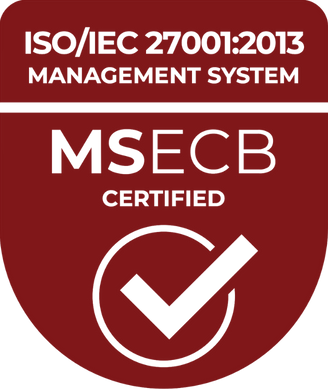This is how you grow your consulting firm faster with ambassadors
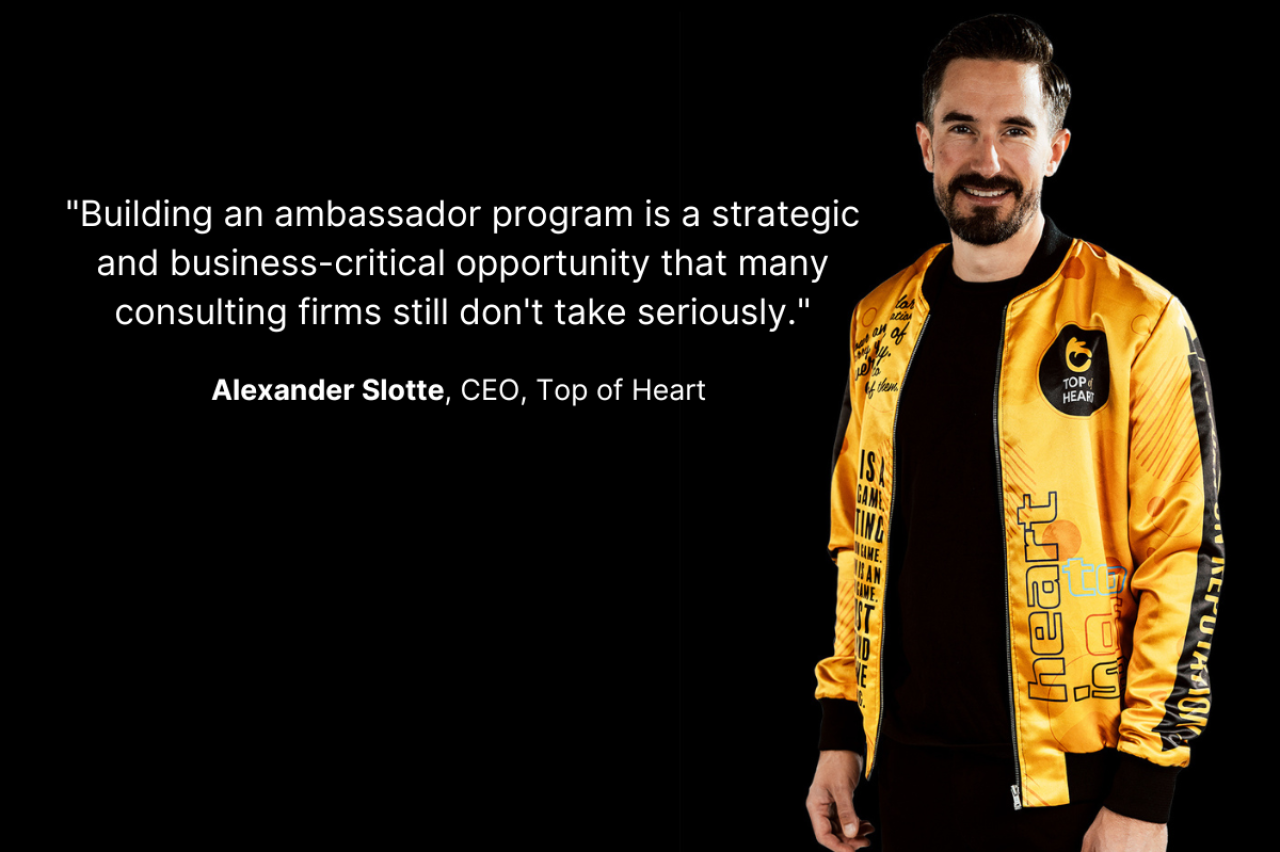
As a consulting company, you have two important strategies to master. Firstly, it’s about acquiring profitable clients. Additionally, it’s about attracting and retaining skilled and loyal consultants.
Running a consulting company is not an easy task. There are countless obstacles to overcome in order to grow and become profitable. I’ve been coaching consulting firms in sales, marketing, and service for over ten years, and there’s something that I see successful companies achieve: creating ambassadors in the early stages on both the client and consultant sides.
To start with, a definition of an ambassador is important. ‘An ambassador is a person who promotes you without being asked and does it willingly.’ These individuals can exist on the client side, but they can also be your consultants and employees. Those of you reading this probably agree that this is exactly how it works.
What sets fast-growers apart from the rest?
The major difference is that those who have succeeded in creating significant client and consultant attraction have systematized this. They have consistently prioritized this in their work at a strategic level.
The most profitable consultants and clients come in through ambassadors
Recruitment is time-consuming and costly. Finding candidates who can be a good cultural and values fit takes time. Your employees can serve as a super resource by acting as ambassadors and informing their network about your company.
The same applies on the client side. Minimizing the sales process by creating entry points instead of making cold calls is always advantageous. Additionally, clients who come by recommendation are not as price-sensitive, and the sales process is often significantly shortened.
How can I stimulate this so that more people want to do it more often?
The first thing to consider is that incentives like extra money in the paycheck or other types of “refer and be rewarded” strategies rarely work in the long run. The research behind this is clear. We don’t recommend to get paid; we do it because we want to and because the opportunity arises.
How can we ensure that our ambassadors recommend us and that these opportunities arise more often?
Opportunities
We can’t control how our consultants spend their time, but we can stimulate them to end up in favorable situations. This could, for example, involve networking events, education, or training. There, they meet people they want to socialize with.
Preparation – How can these opportunities be maximized?
Ensure that every consultant knows their own and the company’s vision, mission, and goals. Boil it down into a simple and clear pitch that can be delivered smoothly. This requires practice, and as the owner or manager of the company, you should have done your homework first. So, test it out before you teach it to others. Also, remember that it’s not what you say that sticks, but how you say it.
When the recommendation comes in to the company
Here, it’s important to set up systems so that it doesn’t fall through the cracks. There’s nothing worse than recommending a friend, former colleague, or customer to come to the company and then receiving no feedback. You’ve lent your personal trust to the company and risked your personal reputation. It should always be honored and acknowledged!
Actions to stimulate recommendations in the long term:
1. Ensure to talk about and highlight good examples of employees who have acted as ambassadors for the company, preferably on a monthly basis.
2. Set up a “game” in which employees can participate. Make sure that recommending new colleagues/customers to the company is enjoyable and surprise those who act as ambassadors with gifts and benefits that are not explicitly stated in advance. Remember that the value in the surprise is greater than the value of the benefit or gift itself.
3. Measure and follow up. Set up a scoreboard to track the game over time. The clearer and simpler it is to track one’s own and colleagues’ progress, the more it motivates everyone participating in the game or those who haven’t yet taken part.
Building an ambassador program is a strategic and business-critical opportunity that many consulting firms still don’t take seriously. Too many believe that “if we just do a good job,” recommendations will come automatically.
There is some truth to this, but just as Jay Baer, one of the world’s foremost coaches in “referral marketing,” writes in his book “Talk Triggers,” “The big mistake most businesses make is assuming that competency will create conversation. It doesn’t. People don’t talk about good, we talk about the unexpected.”
Roughly translated, one could say that your competence is not something people talk about; it’s what surprised them in your collaboration that they want to spread.
To summarize: The earlier you build an ambassador program, the faster you grow organically without needing to invest in marketing or salespeople. If you set up the system correctly from the beginning, you engage more consultants and customers in helping with your growth journey.
Good luck!

Guest blogger: Alexander Slotte, CEO at Top of Heart, Business Advisor, Referral Sales & Marketing Specialist, Speaker
Guest blogger: Alexander Slotte, CEO at Top of Heart, Business Advisor, Referral Sales & Marketing Specialist, Speaker
You may also like...
All posts
Jun 18 2024 · Consulting
Future-proof your business: steps towards an efficient, up-to-date, and sustainable consulting practice
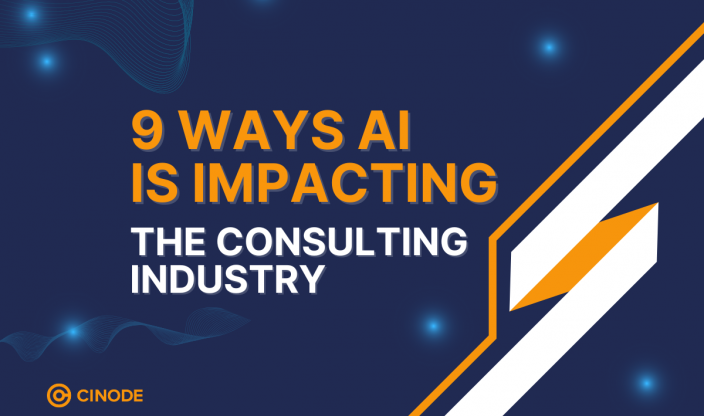
Jun 07 2024 · Consulting
9 Ways AI is Impacting the Consulting Industry

May 28 2024 · Consulting, Konsult
Who is best at equality, really?

May 24 2024 · Consulting
Cinode Launches Europe-wide Fishing Competition for Consultants and Consultancies

May 17 2024 · Consulting
How AI and digital tools are reshaping the role of the consultant
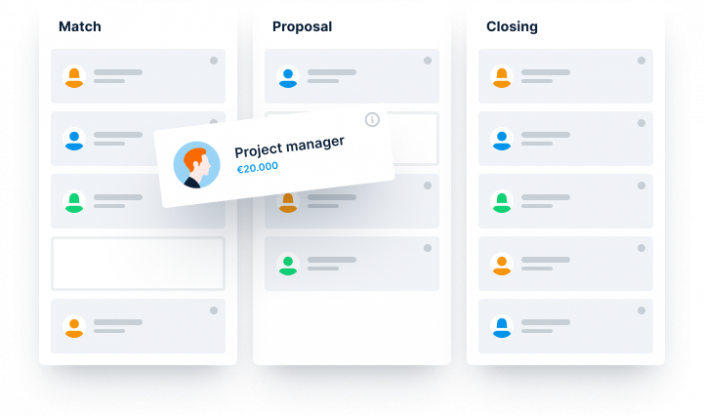
May 11 2024 · Consulting
Get insights about your unassigned consultants

Apr 30 2024 · Consulting
Generative AI in combination with other digital platforms is the hub of the hybrid consultant
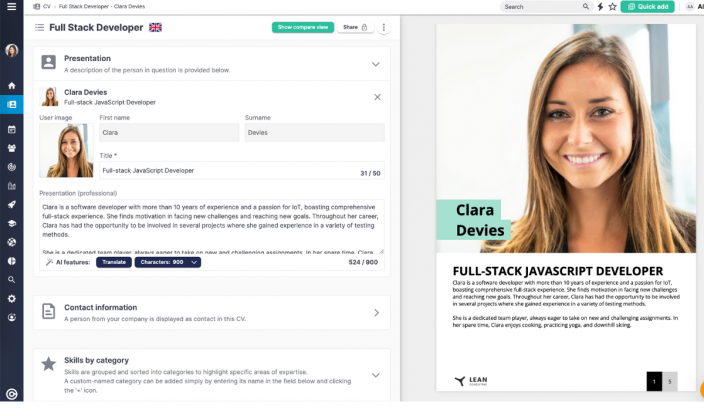
Apr 09 2024 · Cinode, Consulting
Your Consultant Resume on Autopilot with AI Support

Mar 28 2024 · Consulting
6 Easter Eggs to improve your Consultancy

Mar 26 2024 · Cinode, Consulting
8 Important Reasons to Expand Your Network of Subcontractors and Partners – And How to Do It!

Mar 19 2024 · Consulting
The hybrid consultant creates greater value for the customers, themselves, and the consulting company

Mar 12 2024 · Consulting
